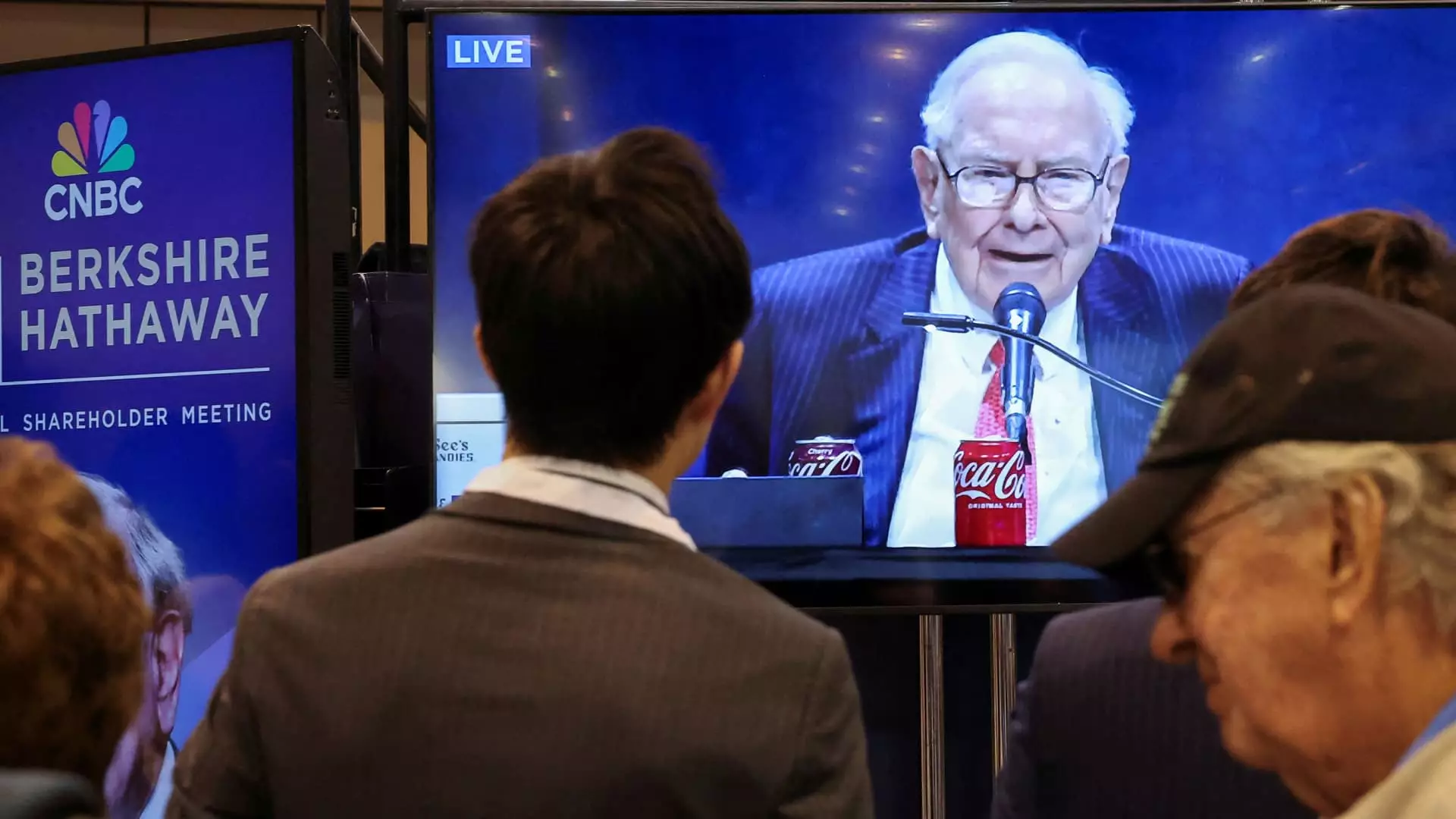Warren Buffett, a name synonymous with investment genius, has finally announced a shift in leadership that many have anticipated but few were prepared for. After an extraordinary 60-year journey that transformed Berkshire Hathaway from a struggling textile mill into one of the world’s most formidable conglomerates, Buffett revealed that Greg Abel, the current vice chairman of non-insurance operations, will succeed him as CEO on January 1, 2026. This landmark announcement came during the recent annual meeting in Omaha, marking an emotional yet strategic shift for the company and its vast array of stakeholders.
Given Buffett’s monumental influence on modern investment philosophy and corporate governance, his handing over the reins carries profound implications. The board’s unanimous decision to appoint Abel showcases a confidence in continuity—a reassuring signal for investors who have benefitted from Buffett’s investment acumen and unique approach to risk. However, with this transition also comes uncertainty, leaving many to ponder what the future holds for Berkshire Hathaway once the iconic figure steps back from day-to-day management.
The Stock Market’s Reaction
Immediately following the announcement, Berkshire’s Class A shares tumbled by over 5%, falling from a record high of $809,350 to approximately $767,000. Meanwhile, Class B shares saw a similar decline, dropping from an all-time high of $539.80 to $509.56. This immediate reaction from the market could be interpreted as a sign of investors grappling with both the emotional weight of losing a legendary leader and concerns about the future trajectory of the conglomerate. While some may argue that volatility during such transitions is natural, the drop could also spill over from Berkshire’s first-quarter financial results, which were discouraging. Operating earnings fell by 14%, primarily due to a staggering 48.6% reduction in insurance-underwriting profit.
Despite these dips, longer-term investors ought to recognize the broader context. Berkshire Hathaway has an unmatched balance sheet and an impressive portfolio that encompasses diversified sectors, including insurance, manufacturing, retail, and energy. The conglomerate has outperformed the S&P 500 this year, underlining its defensive nature amidst market fluctuations. Nonetheless, the short-term response underscores the emotional ties investors have with Buffett and raises lingering questions about Abel’s leadership under these challenging conditions.
Legacy vs. Future Vision
Buffett’s departure, though gradual, represents the closing chapter of a historic era. His strategic genius and visionary outlook transformed a mere struggling company into a $1.2 trillion titan. Many market experts, including Brian Meredith from UBS, argue that Berkshire Hathaway is now less reliant on Buffett’s individual investment prowess, as it boasts an impressive array of cash-flow-generating businesses. This sentiment is further echoed by Macrae Sykes of Gabelli Funds, who notes that keeping Buffett as chairman allows for mentorship to Abel during this vital transition period.
However, the true test of Abel’s leadership will come when the challenges of capital allocation arise. As financial landscapes evolve and market demands shift, Abel must balance the expectations of both discerning investors and a legacy firmly tied to Buffett’s success. The coaching from Buffett, as an ongoing chairman, will be invaluable in navigating these complexities, yet the transition will still compel adaptation and innovative thinking that diverges from the established playbook.
The Uncertain Future
As the dust settles on this announcement, the path forward for Berkshire Hathaway remains to be seen. The firm’s ability to sustain its visionary approach could ultimately hinge on how well Abel can evoke similar values and strategic mindset as his predecessor. With unprecedented challenges facing industries worldwide, consolidation, and a focus on environmental sustainability, Abel will need to move beyond mere caretaking to establish a robust vision that aligns with future growth and diversification.
Amidst these shifting dynamics, investors maintain an underlying trust in Berkshire’s capital allocation philosophy and diversified portfolio, viewing the company as a safe haven. However, as shareholders contemplate the complexities of this transition, they will vigilantly watch how Abel steers this formidable enterprise, eager to see if he can build upon the remarkable legacy laid down by Buffett. The legacy of Warren Buffett is indelible, but in the world of investing, change is often the only constant.

